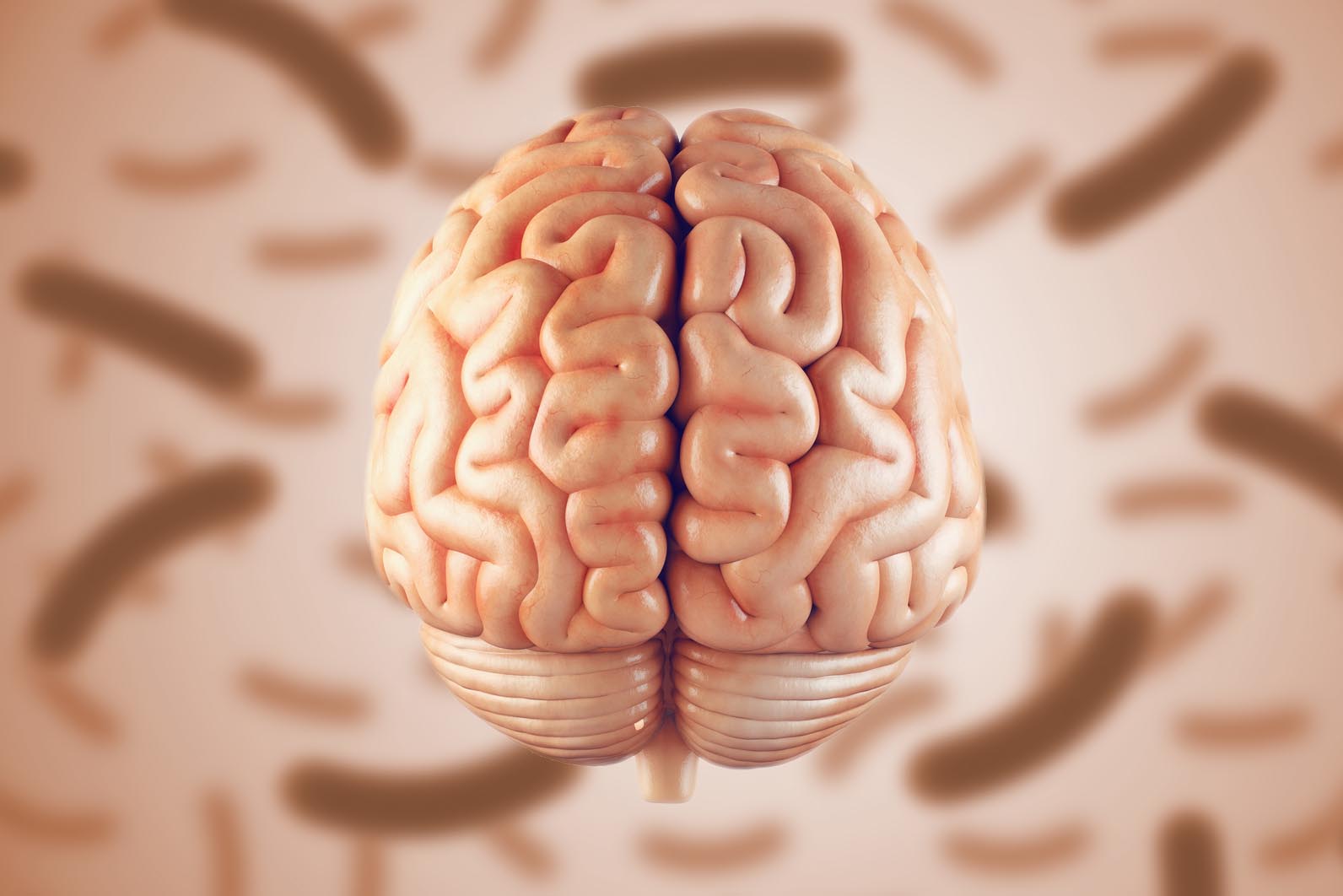• Tools and models
• Microbiota through lifespan
• Microbiota-brain communication
• Shaping the microbiota-gut-brain axis
• Microbiota, brain development, and disease
What is already known on this topic
For a long time, scientists have appreciated the importance of the gut-brain axis in maintaining human health. But the past two decades have seen the emergence of the microbiota as one of the key regulators of gut-brain function.What this research adds
Researchers have reviewed the current knowledge of the influence that the microbiota has on brain and behavior, focusing on the tools and models used to study the microbiota-gut-brain, the pathways of potential communication between gut microbes and the brain as well as the neurological conditions that have been associated with the microbiota.Conclusions
To understand whether in the microbiota is key to the development of specific neurological disorders, future research should move towards causative analyses and trials of potential therapeutic approaches.
For a long time, scientists have known that communication between the gut and the brain is central to maintaining human health. However, the past two decades have seen the emergence of the idea that the trillions of microbes within the gut, collectively known as the microbiota, are one of the key regulators of gut-brain function.
Hundreds of studies have looked at how gut microbes communicate with the brain, and have linked several psychiatric, age-related, and neurodegenerative disorders with the microbiota. John Cryan at University College Cork, in Ireland, and his colleagues reviewed the current knowledge of the influence that gut bacteria have on brain and behavior.
Their work, published in Physiological Reviews, focuses on the tools and the models used to study the microbiota-gut-brain, the pathways of potential communication between gut microbes and the brain as well as the neurological conditions that have been associated with the microbiota.
Tools and models
Although scientists do not fully understand yet the mechanisms underlying the interplay between the microbiota and the brain, they have developed a plethora of tools and animal models, which have allowed researchers to study the microbiota-gut-brain axis.
These tools include animals born and grown in the absence of microbes (germ free animals), the use of antibiotics to deplete or change the gut microbiota of target animals, and fecal microbiota transplant, a procedure that involves the transfer of gut microbes from one individual to another. Several studies have found that various behavioral characteristics can be transferred by fecal transplant, including anxiety- and depressive-like behavior.
More recently, prebiotics—compounds in food that promote the growth or activity of beneficial gut bacteria—have emerged as a way to change the composition and function of the microbiota. Treating animals or people with prebiotics such as inulin, starch, and other dietary fibers resulted in reduced anxiety- and depressive-like behavior and enhanced cognition and learning. However, it’s unclear how prebiotics affect brain and behavior, and which microbial metabolites are involved.
What’s more, brain imaging studies on animal models and humans have showed how diet can affect brain function by altering the gut microbiota. A study that looked at people’s brain scans showed that a strain of Bifidobacterium longum reduced responses to negative emotional stimuli in multiple brain areas.
Microbiota through lifespan
The gut microbiota changes constantly throughout a person’s lifespan. Soon after birth, the human microbiota is characterized by a high abundance of Enterobacteriaceae, Bifidobacteriaceae and Clostridiaceae, and low levels of Lachnospiraceae and Ruminococcaceae. As infants wean, the overall diversity of the gut microbiota becomes more similar to that of adults. Clinical trials of probiotic interventions have yielded promising results with regards to reducing risk for conditions including autism spectrum disorder and attention deficit hyperactivity disorder.
During adolescence, the human gut microbiota shifts towards a higher abundance of Bifidobacterium and Clostridium. Long-term antibiotic treatment that depleted the microbiota during adolescence resulted in anxiety and alterations of cognition and social behavior in adults.
Although the composition of the adult human gut microbiota is generally constant, its stability deteriorates in old age: some studies have shown a decrease in beneficial Lactobacillus and Bifidobacterium in aging. The bacterial family Porphyromonadaceae has been linked to cognitive decline and affective disorders, whereas diets that prevent the age-dependent reduction of Bifidobacterium have been found to have positive effects on health in both mice and people.
Microbiota-brain communication
Many studies suggest that microbiota-host interactions at the level of the gut lead to the release of immune molecules, neurotransmitters, and microbial metabolites that can influence neural messages and possibly regulate brain and behavior.
Researchers have shown that the microbial metabolite 4-ethylphenylsulfate is sufficient to induce anxiety-like behavior in mice, and the gut microbiota has been shown to modulate the enteric nervous system, a network of neurons that governs the function of the gastrointestinal tract.
What’s more, the microbiota has been shown to synthesize and respond to several neurochemicals, including serotonin and GABA, that are involved in human behavior and cognition.
Finally, many microbial byproducts such as secondary bile acids and short-chain fatty acids have been implicated in gastrointestinal function, blood-pressure regulation, circadian rhythm, and neuro-immune function. For example, decreased levels of short-chain fatty acids in stool have been reported in various disorders that affect brain and behavior, like Parkinson’s disease.
Shaping the microbiota-gut-brain axis
The gut microbiota is affected by many factors, including diet, exercise, and drugs. In turn, the microbiota affects behaviors such as fear, stress, and food intake.
Many conditions where food intake behavior is disrupted, such as anorexia and obesity, are associated with an altered gut microbiota, and studies in rodents and people suggest that changes in gut microbiota composition can influence cognitive function.
Administering probiotics, in particular Bifidobacterium and Lactobacillus, had promising effects on stress, anxiety and depression in both animal and human studies. Now, several studies are looking at whether gut microbiota composition can predict an individual’s susceptibility to stress.
Microbiota, brain development, and disease
Whether and how the microbiota can have long-lasting effects on brain development is poorly understood, but studies have shown that germ-free mice have low levels of a protein that is thought to play an important role in neuroplasticity as well as in anxiety and depression in humans.
Antibiotics have been associated with alterations in neurogenesis, apoptosis, and synaptic pruning, whereas treatments with probiotics and prebiotics rescued cognitive and behavioral impairments in rodents.
Although the causes of conditions such as autism spectrum disorder and attention deficit hyperactivity disorder are unclear, there is growing evidence that gut microbes could play a role in some of the symptoms. Studies have found alterations in the abundance of several bacteria, including Bifidobacterium, in people with autism spectrum disorder and attention deficit hyperactivity disorder.
Other studies in animals have found evidence for a link between anxiety, depression and changes in microbiota composition, and probiotic administration has shown to improve mood and anxiety symptoms in people.
In addition to conditions like anorexia, obesity, and irritable-bowel syndrome, an altered microbiota profile has been associated to neurodegenerative disorders such as Parkinson’s and Alzheimer’s disease. Fecal transplants from people with Parkinson’s disease into germ-free mice resulted in motor deficits and neuro-inflammation, two tell-tale signs of Parkinson’s. And people with Alzheimer’s disease have decreased levels of Firmicutes and Bifidobacterium in their gut, as well as an increased abundance of Bacteroidetes compared to healthy people.
Similarly, in the stool of people with multiple sclerosis, researchers found a high abundance of Akkermansia muciniphila and Acinetobacter calcoaceticus.
However, it’s still unclear whether changes in the microbiota are key to the development of these neurological disorders. To address that, future research should move away from correlative studies towards causative analyses and trials of potential therapeutic approaches, the scientists say.











